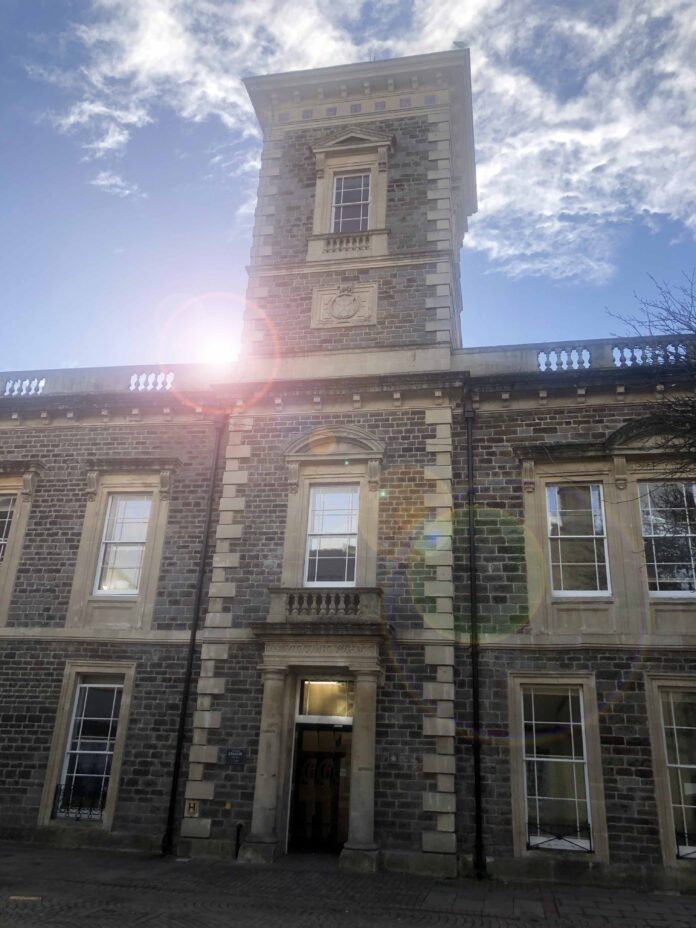THE 19TH CENTURY was a time of advancing knowledge and a thirst for learning. In 1857 the market town of Llanelli in South Wales opened the ‘Athenaeum’. The name refers to the ancient temple of Athena in Athens where Greek scholars would meet to discuss and learn. The Llanelli Athenaeum was a literary and scientific institution for the benefit and education of the public. True to its original purpose, the building is now the public library. Throughout the years it has hosted various cultural and educational events— including a number of high-profile debates between members of the orthodox church and Christadelphians.
One of these took place over two evenings in December 1894, when 200 people crowded into the Athenaeum to hear an examination of the subjects “Is the Soul Immortal?” and “Is the Soul Conscious between Death and the Resurrection?” Those were days when many people knew their Bibles, and were keenly interested in the great questions of religion.
One of the Bible passages that will have been discussed is Ecclesiastes 9:5-6: ‘The living know that they will die, but the dead know nothing, and they have no more reward, for the memory of them is forgotten. Their love and their hate and their envy have already perished, and for ever they have no more share in all that is done under the sun.’
Contrary to the popular belief, the Bible does not teach that consciousness carries on after death. We cease to exist. But that does not mean that death must be the end—because God does not forget. ‘This is the will of my Father, that everyone who looks on the Son and believes in him should have eternal life, and I will raise him up on the last day’ (John 6:40). Those are words of Jesus Christ. He is the Son of God, and when he returns to earth to establish God’s Kingdom he will give eternal life to those who have believed and been faithful to him.
How God Remembers
Memory is a strange thing. How often do we forget things we want to remember, and remember things we want to forget?
God is not like that. ‘I am God, and there is no other; I am God, and there is none like me, declaring the end from the beginning and from ancient times things not yet done, saying, ‘My counsel shall stand, and I will accomplish all my purpose’ (Isaiah 46:9–10). If we belong to God we can have absolute confidence: ‘The Lord knows those who are his’ (2 Timothy 2:19). He knows every detail of our lives: ‘Even the hairs of your head are all numbered’ (Matthew 10:30).
God never forgets—except when He wants to forget something. Then He erases it: ‘I am he who blots out your transgressions for my own sake, and I will not remember your sins’ (Isaiah 43:25). Think about that! No matter what you’ve done, no matter how you feel about it, no matter what other people say—if you turn back to God and ask His forgiveness, then He will forgive you. And then as far as He is concerned it’s gone and there’s no need to worry about it any more.
The prophet Micah pleaded with his people to turn back to God from their evil ways with words of reassurance: ‘He will again have compassion on us; he will tread our iniquities underfoot. You will cast all our sins into the depths of the sea’ (Micah 7:19).
To belong to God is to be confident in His absolute knowledge of everything we are and everything we do, and in the certainty of His mercy and forgiveness.
How We Remember
We are not like God. We forget, very easily. For this reason the Lord Jesus gave his followers a simple practice to keep them focused on the things that are really important in life. On the night before he died, he shared a meal with his disciples. ‘And he took bread, and when he had given thanks, he broke it and gave it to them, saying, “This is my body, which is given for you. Do this in remembrance of me.” And likewise the cup after they had eaten, saying, “This cup that is poured out for you is the new covenant in my blood” (Luke 22:19–20). Ever since, his followers have expressed their faith and fellowship, reminded themselves of the forgiveness of their sins, and rededicated their lives to his service, by sharing this simple ritual together.
The ancient Greeks who met and debated in the Temple of Athena have largely been forgotten, along with their wisdom. However, those people of ancient and modern times who have believed in the God of the Bible and look forward to His Kingdom, will not be forgotten:
‘Those who feared the Lord spoke with one another. The Lord paid attention and heard them, and a book of remembrance was written before him of those who feared the Lord and esteemed his name. “They shall be mine, says the Lord of hosts, in the day when I make up my treasured possession” (Malachi 3:16–17).



